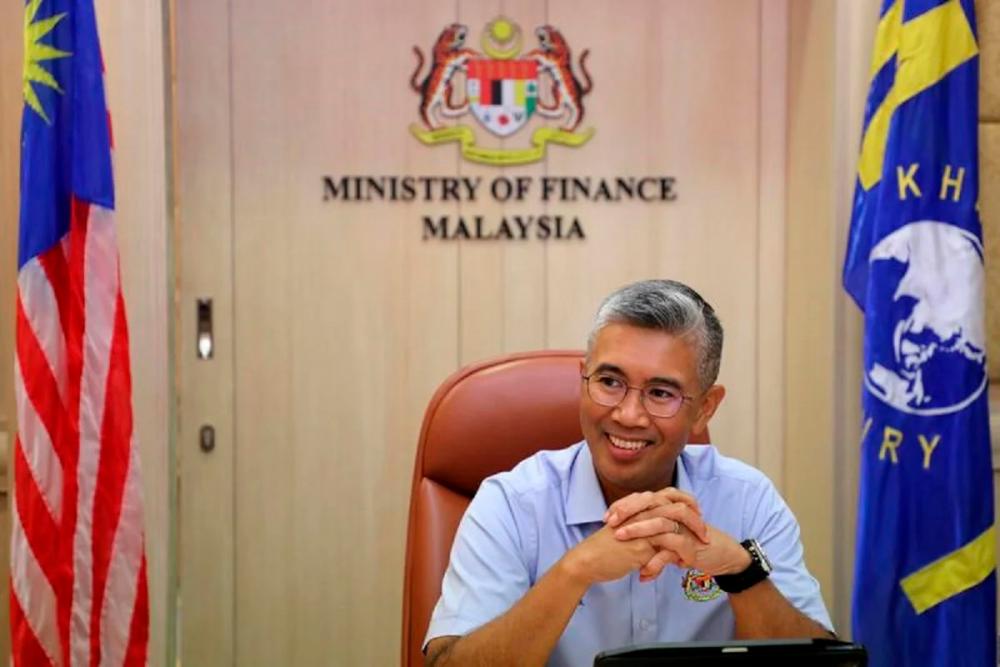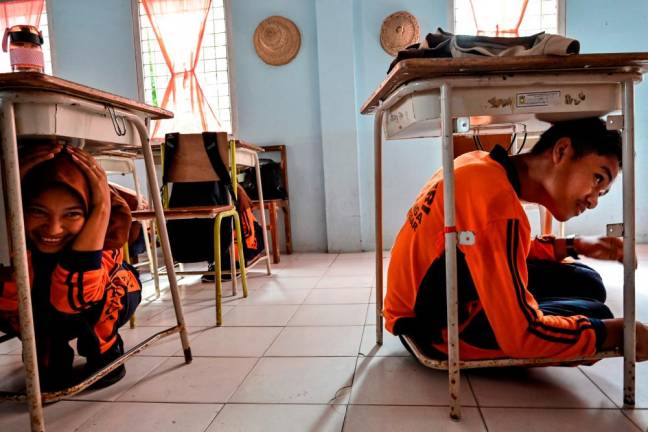PETALING JAYA: The Finance Ministry, under Malaysia’s digital economy blueprint (MyDigital) will ensure payments for all government services by 2022 are made on a cashless basis, said Minister Tengku Datuk Seri Zafrul Tengku Abdul Aziz (pix).
“This will lead to higher transactional security, better coordination, enhanced communication on anti corruption initiatives and greater ease of sharing information,” Zafrul said in his keynote address for the Malaysian Institute of Accountants’ (MIA) International Accountants Conference 2021 held virtually today.
Last year, the government saw e-payment accounting for 60% of its total collection.
He shared that the push towards digitalisation has led to a more efficient and effective public service delivery, as well as curbing leakages, fraud and corruption.
These efforts have culminated in the reduction of contact points between citizens and public officials to modernise service and curb corruption; shift towards electronic identification cards and biometric proof to identify citizens as well as expediting direct government assistance to ensure inclusiveness, accessibility, transparency and accountability.
The application and payment of direct aid under the Bantuan Prihatin Rakyat and Geran Khas Prihatin package has been made electronically and online.
Meanwhile, he said accountants play a key role driving digitalisation as outlined by MyDigital towards a more digitally connected economy that is on the Industrial Revolution 4.0 (IR4.0) path.
He pointed out the need to build towards a resilient and sustainable economy in the post Covid-19 world and digitalisation is one of the key thrusts to achieve that goal.
“As an important influencer and advocacy towards informed decisions, accountants also play a key role in driving digitalisation,” Zafrul said. This is particularly so with the efforts made by MIA for the adoption of integrated reporting.
On sustainability, he welcomed MIA’s advocacy on this area, particularly on Malaysia’s commitment to embed environment, social and governance (ESG) principles as well as the UN Sustainable Development Goals (SDGs).
“The MIA has been advocating that SDG reporting should be included in corporate reporting, and this is very valuable as accountants bring unique skills and expertise within the global discourse and engagement on sustainability.”
Specifically, he elaborated that accountants are uniquely qualified to measure and assign climate impact costs such as carbon and greenhouse gas emissions, to provide independent assurance on sustainability processes and impacts, and to issue reports and communications on these impacts to support decision-makers and influence positive change.
MIA president Dr Veerinderjeet Singh emphasised the importance of accountants taking the lead in good corporate governance and the organisation’s stance that tax transparency is also a key factor to be considered under the governance aspect of ESG.
“Importantly, stronger tax governance and compliance is vital in order to improve tax collections, which are needed to finance the nation’s proposed stimulus, digital transformation, talent upskilling and sustainable development programmes.
“By virtue of their expertise and competencies, accountants should also be taking the lead in fighting corruption, fraud and other leakages that threaten the development of the nation,” he said.










